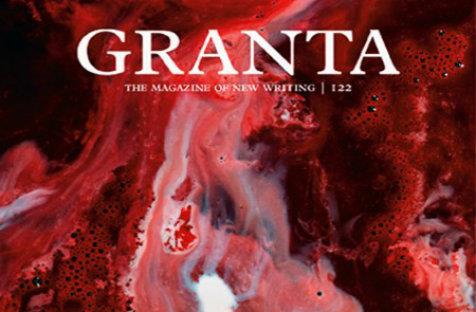Edited by John Freeman, Granta Issue 122: Winter 2013 delves into the psychopathy and literal realms of its central theme, Betrayal, and a world of snitches, liars, spies and cover-ups explored across 12 international, individual, literary works.
Founded in 1889 by students at Cambridge University as The Granta, a periodical publication intended as a platform for students to voice their political, social and literary enterprise, Granta (since its rebirth in 1979) continues to publish many of the world’s finest contemporary writers and tackle contemporary issues.
Beginning this exemplary series of short fiction/non-fiction is ‘Seven Days in Syria’ by Janine di Giovanni, witness to a nation betraying its people. Students are horrifically tortured and a family witnesses a massacre: ‘a prisoner exchange gone wrong’.
‘”Syrians could not do this to other Syrians,” she said, her voice shaking.’
Giovanni shrewdly illustrates the terror and shock in her writing by focusing on those who are really the victims of war and military invasion – the innocent.
‘A Brief History of Fire’ by Jennifer Vanderbes takes place in the Gila Wilderness (the mountains of south-western New Mexico). It tells the story of Sarah, who maps fires for a living. As her story unfolds it is revealed that Sarah has a history with fire, which eventually leads her to isolation within the Gila Wilderness and to the betrayal hidden within herself. Vanderbes cleverly reveals Sarah’s story through her use of transition, which flows expertly through a well-composed backstory.
Documentary photographer Darcy Padilla tells us the real-life story of ‘Julie’, betrayed by a devastating illness – AIDS – in the early 1990s. Padilla met Julie in 1993 while working on a project about urban poverty ‘at the Ambassador Hotel, an SRO flophouse in a neighbourhood littered with crackheads and soup kitchens’. Over the next 16 years Padilla recorded Julie’s relationships with her children and her partners and her slow, systematic decline. Padilla’s skilful use of journal entries as we are updated on Julie’s progress provides an excellent backdrop to her crude but heart-wrenching black and white photographs detailing Julie’s final years.
Ben Marcus’ ‘The Loyalty Protocol’ is in the realm of Justin Cronin’s The Passage. Nobody really knows what the ‘loyalty protocol’ is. All Edward knew was that the drills were becoming more frequent – but why? Unexplained deaths, cover-ups and conspiracy theories form the basis of this cunningly written tale, leaving the reader to form their own conclusion, but none the wiser.
These are only a few of the works published in the latest issue of Granta. Each stands on its own merits, and under Freeman’s editorial direction, represents some of the finest writing and storytelling I have read in a long while.
Rating: 4 out of 5 stars
Granta issue 122: Winter 2013
Edited by John Freeman
Paperback, 288pp, RRP $27.99
ISBN: 978-1-905881-65-9
Allen & Unwin





